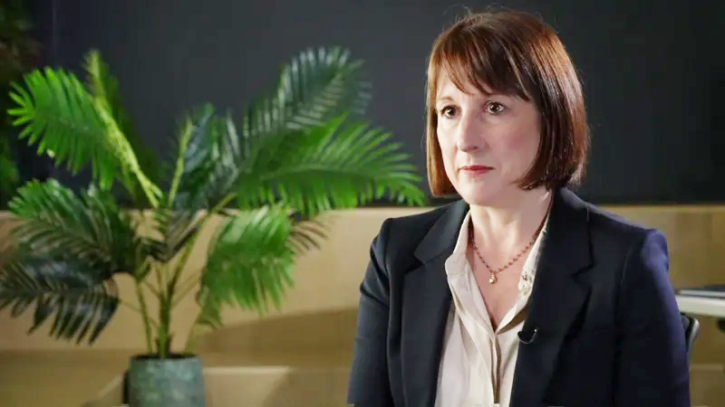British Chancellor Warns of Tough Decisions in Upcoming Budget

Photo: Collected
The Chancellor, Rachel Reeves, has warned that next month’s Budget will involve “difficult decisions” on taxes, spending, and welfare as the government grapples with a challenging economic landscape.
Reeves, who has already faced sharp criticism after slashing Winter Fuel Payments for all but the poorest pensioners, defended the move, calling it the "right decision." However, she cautioned that more tough choices lie ahead.
Her remarks come as fresh data revealed that the UK economy failed to grow in July, following stagnant performance in June. This sluggishness is a blow to the new government, which has made economic recovery one of its key priorities.
In an interview with the BBC, the Chancellor tried to strike an optimistic note about future growth, but emphasized the need for austerity measures this autumn. “I’ve been really clear that the Budget on 30 October will require difficult decisions on tax, spending, and welfare,” she said. “But the prize—if we can bring stability back to our economy and attract investment—is economic growth, good jobs, and decent wages for every region of our country.”
The Chancellor also revealed she is facing a £22 billion shortfall in the public finances this year, partly due to her decision to fund above-inflation public sector pay deals, which accounted for about £9 billion of the gap.
Speculation is mounting over potential tax hikes or adjustments to the debt targets Reeves has committed to maintaining. These fiscal rules, self-imposed by the government to limit borrowing over a five-year period, could be relaxed to offer the Chancellor more flexibility in her Budget. While Reeves has refused to rule out changes to these rules, she has so far been tight-lipped on any specific plans for tax increases.
The Chancellor welcomed Amazon’s recent announcement of an £8 billion investment in UK data centres, describing it as a move that would “help rebuild Britain and improve prosperity across the country.”
However, the disappointing July figures also highlight a missed opportunity for the Treasury, which had hoped for a boost in tax revenues from stronger economic growth. Analysts had forecast a 0.2% increase for July, bolstered by a summer of sporting events such as the Euros and the Olympics, which lifted the services sector.
Liz McKeown, Director of Economic Statistics at the Office for National Statistics (ONS), acknowledged the stagnation but noted that “longer-term strength in the services sector resulted in growth over the last three months.” Growth was driven by industries such as computer programming and the health sector, which recovered from June’s strike action. However, there were declines in advertising, architecture, and engineering output.
It was a “particularly poor” month for the automotive and machinery sectors, McKeown added.
While the ONS monitors monthly GDP figures, greater attention is given to quarterly trends, as monthly numbers are preliminary and subject to revisions. After a shallow recession at the end of last year, the UK saw a return to growth in the first half of 2024, and experts are cautious about drawing any conclusions from the July data alone.
“The economy may have stagnated in July, but that doesn’t mean the UK is on the verge of another recession,” said Ruth Gregory, an economist at Capital Economics. “We can take some comfort from the fact that services output rose by 0.1% month-on-month.”
A Strong Summer for Some
Retailers and hospitality businesses saw a boost in July, driven by the success of the England men's football team in the European Championships. Gillian Fletcher, general manager of Spinningfields in Manchester, said their venues screened the Euros, Wimbledon, and the Olympics, and that people were keen to enjoy these experiences despite the economic challenges.
“It’s not that people don’t want to spend money or go out, but the economic landscape has changed,” Fletcher said. “We’ve had a really great year and summer, which shows that if you offer the right experience, people will come.”
However, not all businesses benefited. Some restaurants reported a decline in footfall during the football tournament, and overall travel bookings fell month-on-month, despite a slight uptick in Olympic-related trips.
 (5).png)








